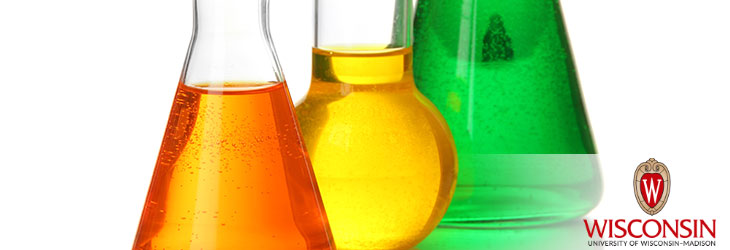
UW-Madison researchers have developed a method to synthesize silica nanoparticles from leachates produced from mineral carbonation. High surface area silica nanoparticles are precipitated from the carbonation leachate using amino acids such as lysine. To achieve this, amino acid powders such as lysine are added to the Si-rich carbonation leachate and the solution is kept at room temperature for up to 2 hours, during which lysine instigates silica precipitation by complexing with aqueous Si species and serving as nucleation agents. Resulting silica nanoparticles can be filtered out and resuspended/redispersed in a basic solution after washing in mild acidic solution for a few minutes. During this process, the pH of the leachate is minimally affected, allowing the solution to be recycled for mineral carbonation. This is attractive compared to the traditional method of inducing silica precipitation through a pH swing (by adding mineral acid or CO2 to the solution), where the reduction of pH renders the reuse of the solution difficult. The amino acid concentration and precipitation time can be varied to control the size of the silica nanoparticles, which is also difficult to achieve using pH swing methods.